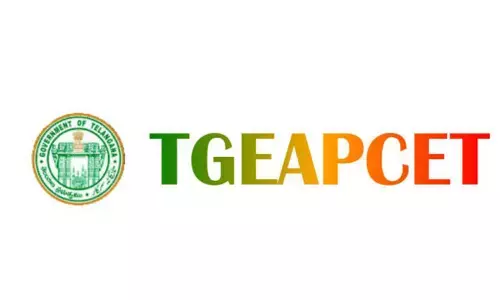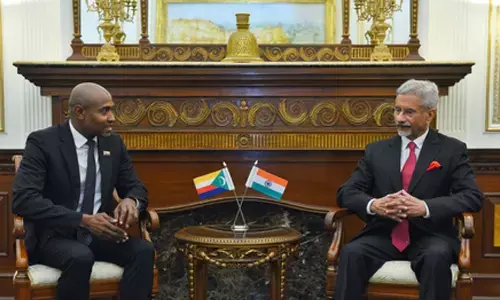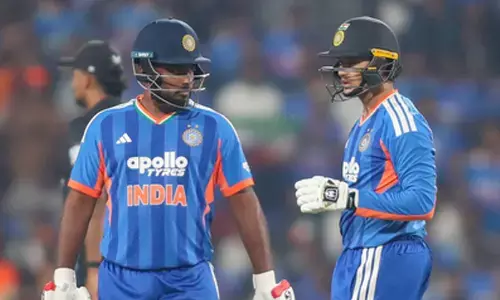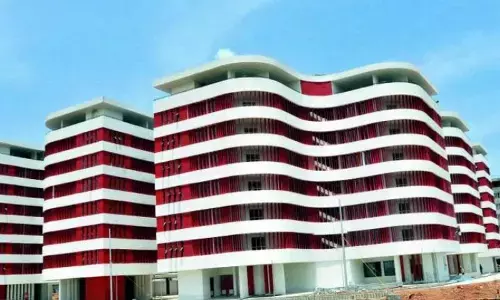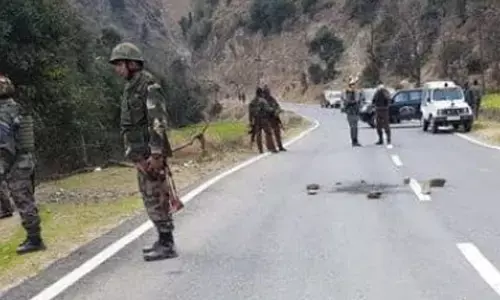My President; Your President: Our President
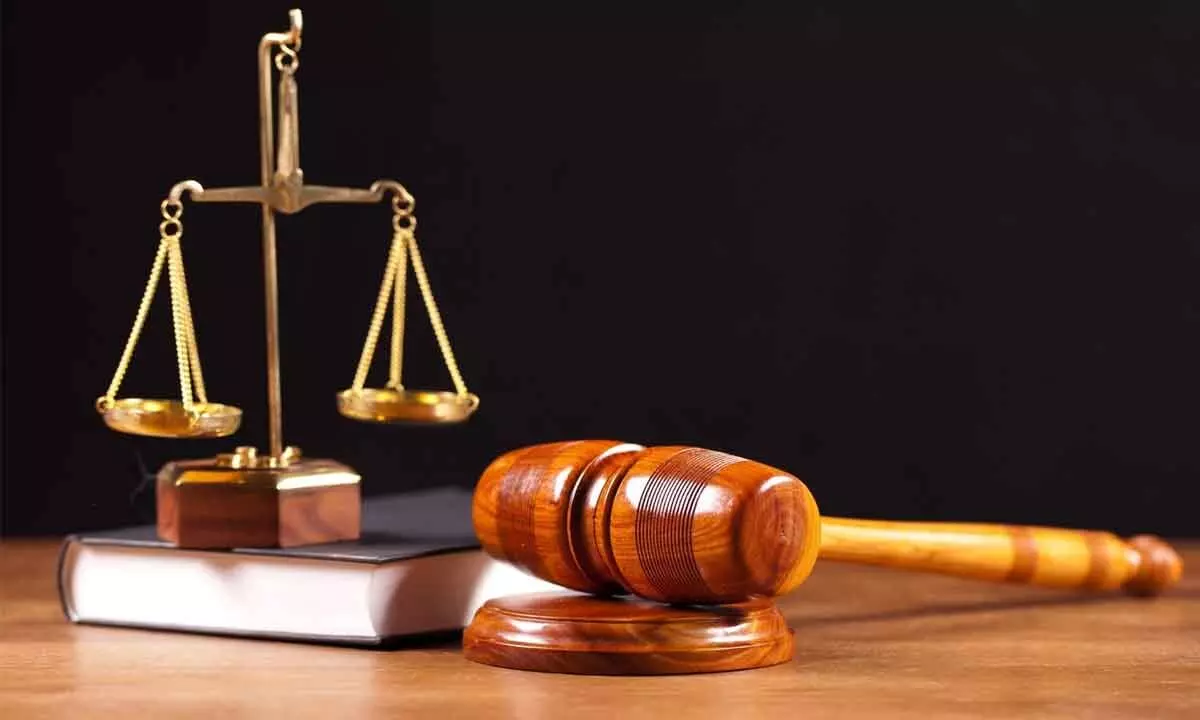
Representational image
While the election to the august post of the President of India, 15th in a row has been concluded and the nation has been engrossed with the celebrations all around, this occasion also offers an opportunity for the overview, inner view and side view of the electoral process contained in the Constitution of India.
While the election to the august post of the President of India, 15th in a row has been concluded and the nation has been engrossed with the celebrations all around, this occasion also offers an opportunity for the overview, inner view and side view of the electoral process contained in the Constitution of India.
It is true that an unprivileged, deprived and depressed lady as she is, Droupadi Murmu represents the most neglected, though deserving class of the society called the Scheduled Tribe and this singular fact speaks volumes for her selection for the post of the President of the world's second largest democracy. As a person, undoubtedly, she is a woman with iron will and a person of high altitude of determination to withstand any odds. The ruling National Democratic Alliance (NDA) led by the Bharatiya Janata Party (BJP) deserves a pat on the back for the right selection at the right time for the right reasons.
As it is known, under the scheme of the Constitution, the President is a non-partisan head of the nation. In practice, however, the incumbent to this highest post usually belongs to the ruling party or a group of parties as has been the case today. Moreover, during the electoral process the parties are not permitted to issue the whip, thereby giving freedom of conscience to all the members of the electoral college to exercise their voting right in favour of a candidate irrespective of their party affiliations. The recent result of the presidential election also prove this theory. A good number of MPs ; MLAs from the opposition parties voted in favour of Droupadi Murmu.
Therefore, the BJP and its NDA alliance going gaga over the tremendous victory of the candidate sponsored by them is not in good taste. What is more intriguing is taking full credit for the victory of Droupadi Murmu by some over enthusiastic leaders of the BJP and its alliance NDA. In fact, once the election process is over, the President-elect becomes a non partisan person and if at all credit is to be taken for her victory, it should be taken not only by the ruling party alone but also by all the parties, groups and even by a man in the street! This would be the right way to rejoice and celebrate the victory of the new President-elect. The celebrations emanating from the bottom of heart should be true, genuine and sincere with the fervour of patriotism and nationalism.
Luckily, the President-elect is a non controversial matured person having rich experience as an MLA, Minister and the Governor before aiming at the highest post. She knows it fully well that she is the first citizen of this great country which is a home for about 140 million of people. She also knows that she is the Supreme Commander of the defence forces as also the head of the nation. In a democracy, there are checks and balances which must be respected.
The new president will have to do the tight rope walking in testing situations. On the home front, serious issues such as terrorism, Jihadism and extremism are staring menacingly
besides the problems of unemployment, rising prices and social discrimination of under privileged classes. Further, proper and timely use of the Constitutional provisions of Emergency, if need arises, will prove to be an acid test for the new incumbent. On the international front, retaining India's position as a friend, philosopher and guide to the world comity and protecting the borders from the evil eyes of Pakistan, China and their allies are going to test her capabilities during the 5 years of her tenure. These are the expectations from my President, your President and our President!
DELHI HC ON COMMERCIAL COURTS ACT
Setting at rest the doubts as to whether the 2018 amendment to the Commercial Courts,Commercial Division and Commercial Appellate Division Act, 2015 was retrospectively effective, the division bench comprising the chief justice Satish Chandra Sharma and Justice Subramonium Prasad has recently held that the said Amendment Act is prospectively effective, that is w.e.f May 3, 2018.
The bench delivering the judgment on July 18 in Satyanarain Khandelwal Vs. Prem Arora & others held that Section 19 of the Amending Act will apply prospectively to all the pending suits and applications of a specified value of more than Rs. 3 lakh. Under the 2015 Act, this limit was Rs.1 core or more.
PAROLE, A REFORMATIVE PROCESS
Stating that releasing a convict on parole is part of the reformative process, the division bench comprising Justice G.S Sandhawalia and Justice Vikas Suri of the Punjab and Haryana High Court granted parole for six weeks to enable the life prisoner to take care of his old and ailing parents.
The petitioner-convict , Mohammad Shehbaz who was convicted under Sections 302, 120-B and 201 of IPC has been in jail since past 4 years.
DELHI HC ON ELECTION PETITION AGAINST THE PRESIDENT
The Delhi High Court dismissed a petition seeking to disqualify the legislators, who have been jailed from voting in the recently concluded presidential polls.
In a case, titled, Satvir Singh Vs. Union of India & another, the bench of Justice Sanjeev Narula, held that Article 71(1) of the Constitution as well as the Presidential and Vice- Presidential Elections Act, 1952 categorically provide that the only remedy in relation to a Presidential election, can be by way of an election petition after declaration of the result and added that it is the exclusive jurisdiction of the Supreme Court to hear such matters. Dismissing the petition, the court observed that the petition was filed on the eve of the presidential polls which made it 'highly suspect.'
TEESTA SETALVAD TUTORED US, SAY ACCUSED
Two accused, Harshad Solanki and Mafat Gohil in the Best Bakery case related to the 2002 Gujarat riots have reiterated the allegation that the social activist, Teesta Setalvad had tutored the witnesses. According to them, they were the victims of a conspiracy organised by Setalvad and her accomplices to implicate innocent people.
The plea filed by the two accused in a Mumbai Sessions Court seeks the transfer of their case to another court stating that their confidence in the trial court has been shaken and they are worried as to whether they would get justice or be punished in a routine and mechanical manner.








